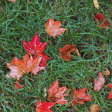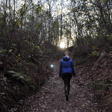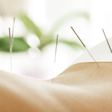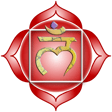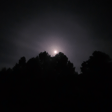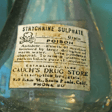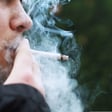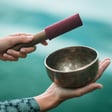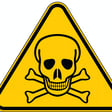Become a Creator today!Start creating today - Share your story with the world!
Start for free
00:00:00
00:00:01

Herbs for Good Health
There's no denying the power of some of today's marvelous pharmaceutical wonders. But don't forget that, for centuries, people successfully used a variety of herbs to treat various illnesses and disorders. There isn't enough time in one of these episodes to cover ALL the medicinal herbs you could use, but here is a sampling of some that are commonly available, and that could be of use to you.
And by the way, my recommended source for purchased herbs (the one we use for herbs we cannot grow ourselves) is Mountain Rose Herbs. https://www.mountainroseherbs.com
Music in body of episode: "Metamorphosis" by Quincas Moriera
And by the way, my recommended source for purchased herbs (the one we use for herbs we cannot grow ourselves) is Mountain Rose Herbs. https://www.mountainroseherbs.com
Music in body of episode: "Metamorphosis" by Quincas Moriera
Transcript
Introduction to Full Spectrum Holistic Health Podcast
00:00:03
Speaker
Hello and welcome to the Full Spectrum Holistic Health Podcast. This podcast is all about holistic health, what it is, various holistic and alternative health therapies, and how those may help you to be a healthier and happier person. Thanks for choosing to listen today. I know there are many podcasts out there for you to choose from, and I'm glad you are here.
Meet Dr. Anthony Burton: Reiki Master and Shamanic Practitioner
00:00:26
Speaker
I'm the host for the podcast, Dr. Anthony Burton. I'm a Reiki Master EFT Therapist
00:00:32
Speaker
meditation teacher, and a shamanic practitioner. My goal is to help people be healthier in body, mind, and spirit, and that's why I'm here. A large part of what I do is educational in nature because so many people are unaware of the power and efficacy of various holistic and alternative therapies.
Podcast Content and Guest Interviews
00:00:54
Speaker
In these podcasts, we'll hear stuff that will inform you, enlighten you, and help energize and balance you.
00:01:00
Speaker
Of course, it won't always be only my opinions and ideas because occasionally I will be interviewing knowledgeable and interesting guests from a variety of areas of holistic and complementary health practices. So kick back and relax, open your mind, and listen.
Spectrum Holistic Wellness Business
00:01:18
Speaker
Spectrum Holistic is a complementary health and wellness business located in northwest Georgia, USA.
00:01:24
Speaker
Check out the website at www.spectrum-holistic.com for more information.
Personal Stories and Family Events
00:01:37
Speaker
Well, I guess I need to apologize for it being so long since the last time I posted an episode. It's been an eventful couple of months. Not long before I was going to post the last episode,
00:01:54
Speaker
I mean, excuse me, this episode, my father passed away. He'd been living with us for a couple of years and he had broken his hip and he was in hospital, had surgery and came out and he was not doing well and he was placed on hospice and passed away on the 23rd of September and that was
00:02:26
Speaker
That was an emotional time. And then in October, we went up to see my wife's relatives in Wisconsin because her mother, also 86, had also fallen a few times and broken her ankle. And it was rough. It was rough because, you know, there's all this, all these things happening at one time.
00:02:50
Speaker
And we were up there for a couple of weeks. And one with the travel and dealing with the estates, or rather the estate, my father's estate, and also trying to get things settled with getting my mother-in-law moved into a nursing home where she could have good care like she needed. It has been really effective. So anyway, now I want to talk to you about something
Herbal Health Therapies and Qualifications
00:03:20
Speaker
that I hope will be helpful. And it's all about herbs and things for good health. Recently, after church, during one of the, during a post-service potluck, we have those once a month, one of the members at the same table with us realized that I'm a holistic health practitioner and asked me if I'm a holistic doctor. Now, I never try to pull the wool over someone's eyes with my doctorate.
00:03:48
Speaker
So I told her, no, I am not a medical doctor, not an MD. Uh, but then I use complimentary medicine such as Reiki, EFT, meditation, sound therapy and so forth to help, to help people heal. And I discovered that the reason she asked was that she was searching for a local medical herbalist. Well, I do inform her rightfully that even though I have studied herbal therapies, I do not profess to be a medical herbalist.
00:04:17
Speaker
Though I may make herbal recommendations to my clients as part of an overall therapeutic plan, if they ask, often I will refer them elsewhere if I'm not sure what herbs may be of use in their particular situation because I know my limitations. But on my way home, I was turning this over into my mind and I realized that even though I don't prescribe herbal medicines to my clients,
00:04:45
Speaker
Over the years, through studying experience, I've learned a good bit. And quite frankly, my wife is really, really interested in herbs and we discuss this kind of stuff quite often. Um, and I've learned most of all to keep great reference books around to find out more when I need the information. So in an effort to bring at least some herbal information to my listeners, here are a few, very few medicinal plants and herbs.
00:05:11
Speaker
that are common enough to find in many folks' yards, or nearby woods and pastures, or sometimes in their flower beds, or in their local grocery store. I won't go into great detail about any one of them, but I hope this wets your appetite to research more on your own.
Muscadine Berries: Antioxidant Powerhouse
00:05:29
Speaker
Now, since I live in the southeastern U.S., the first one I want to mention is muscadine, or vitis rotifendoea. Excuse me.
00:05:41
Speaker
Vitus rotundifolia. There we go. Many people refer to these as a kind of grape, but really they're not grapes technically, but they're berries. And you'll hear them referred to as possum grapes in the south sometimes, or Cherokee grapes. When European explorers and colonists landed here in the 16th century, they were astounded at the abundance of these berries, the muscadines, and also scuppernongs, which is a
00:06:11
Speaker
a variety of muscadines, but it's bronze in color, kind of a gold bronze color. They were really taken with these and they made a wine from them and they even were so enamored of this wine that they gave some to Queen Elizabeth first. And later colonists were even required to cultivate them. It was like, okay, if you're going to be here, you're going to be a colonist, now farm, you are going to raise muscadines. That's the way it was. And they were used to make jelly and jam.
00:06:41
Speaker
and juice and wine. Now, although they're native to the southeastern United States, they have naturalized as far up the eastern seaboard as Maryland. Okay, well now that's good information, but what about their medicinal properties? I'll tell you a little bit about that, but first let me give you the title of a great little book on the subject called Muscadine Medicine by Diane Hartl, PhD.
00:07:07
Speaker
Philip Greenspan, PhD, and James Hargrove, PhD. That little book is chock full of information about the variety of ways muscadine and scuppernung can be a benefit to our health. And we have muscadine on our property, by the way, both the wild variety that grow voluntarily in the woods and the cultivated varieties. And we enjoy them immensely when we can keep the deer away from them or the birds.
00:07:36
Speaker
Now let's go outside, go from the outside in. Muscadine skins are a little tougher than grape skins, but maybe that's because they contain so many beneficial compounds. The skins can be dried and made into a powder that's high in pectin content, and as well as phenols such as a legic acid and kemphrol. These phenols are different types of antioxidants, so they're really good for you.
00:08:04
Speaker
And we all know how important these antioxidants are in reducing the effects of aging. But these phenols have also been shown to reduce the incidence of breast cancer and they help to prevent high blood pressure and heart disease. Now these same dried and pulverized skins are sometimes used in food supplements and they are excellent additions to smoothies or adding extra health benefits to other juices. Now,
00:08:32
Speaker
I was about to say muscadine do not come in a seedless variety, but I was just informed yesterday by my wife that yes, they have developed a seedless variety of muscadine. But the truth is, I don't know why you would want to do that because there are so many fantastic nutrients in the seed. You're supposed to just crunch up the seeds and eat them. My wife puts muscadines in her morning oatmeal just about every day and I can hear her crunching up the seeds.
00:09:02
Speaker
These muscadines also contain high concentrations of the seeds rather, contain the high concentrations of those phenols with their high antioxidant value. And if you are eating whole muscadines, be sure to chew up the seeds. They don't taste nasty. Don't worry there. They're just kind of crunchy. Reminds me of grape nuts. And breaking them up like that, chewing them up helps the body to absorb the helpful chemicals in the seeds. And they really are helpful.
00:09:30
Speaker
I mean you might even see food supplements in health food stores labeled muscadine grape seed capsules and all that's in there is powdered dried seeds.
Herbs for Memory and Health: Rosemary and Sage
00:09:41
Speaker
Now let's talk about the next herb on my list here, rosemary. Rosemary or salvia rosmarinas. You may have tasted this herb especially in chicken dishes, focaccia bread or various dips and it is pretty darn delicious. But beyond
00:09:59
Speaker
the lovely taste of it, scientists have found that simply sniffing rosemary, smelling it, you know, taking a good whiff, whether it's the leaves or the essential oil from rosemary has an improving effect on the memory, but that's not all. Consuming rosemary also has been shown to improve cognition, that's how well we think, and to slow brain decline due to aging. I don't know about you, but
00:10:27
Speaker
I'm in my 60s and I would love to slow that brain decline due to aging. In fact, some studies have shown that chemicals in rosemary might be useful in treating stroke victims and speeding their recovery. The antioxidants in rosemary are helpful in boosting the immune system and they aid circulation, which in turn will help keep both body and brain healthy.
00:10:55
Speaker
One of the things that so many people worry about is cancer, the big C. Researchers have found their rosemary extract slowed the spread of human leukemia and breast cancer cells. And also, if you like your roast beef or steaks on the grill, research has shown that adding rosemary extract to beef while you're cooking it.
00:11:17
Speaker
can actually reduce the formation of those cancer-causing agents that often develop when cooking beef, especially on the barbecue grill. Let's talk about another one now. And this is sage. Now I want to talk about a non-culinary sage at first. Many people who have indigenous American backgrounds or those who might practice alternative medicines or those who follow non-traditional spiritual paths, if you use white sage,
00:11:46
Speaker
salvia abiana as a smudging plant for hundreds of years. The smoke from smoldering white sage is used as a spiritual cleansing agent, but recent scientific research has shown that this is not the only benefit. Now, you may not ascribe it at all to the spiritual benefits of the smoke from the white sage, but research has shown that it's antimicrobial.
00:12:13
Speaker
as well as a benefit in repelling insects. And it doesn't harm the body as some of the chemicals in common commercial insect repellents may do. There was a scientific research study by the University of Mississippi that established that the same white sage is rich in compounds that activate certain receptors in the brain. So by smelling that smoke, as you're smudging, it can elevate your mood levels,
00:12:43
Speaker
reduce stress and even alleviate pain. And I'll be the first one to tell you that when I smell the smoke of smudging sage, it does lift my spirits. Now, whether that's because of the spiritual aspect of it or because of the medical aspect of it, I don't know. I don't care whichever way it works. It's doing it for me. Now, even though traditionally sage smudging has usually been performed with either white sage, as I said, salvia abiana,
00:13:14
Speaker
or white prairie sage, which really isn't a sage at all. Its scientific name is Artemisia ludiviciana. Some have used culinary sage. It's the same sage that you use when making dressing or stuffing with a turkey dinner or chicken as a smudging agent. But, even though you might use it as a smudging agent, culinary sage has its own set of helpful properties. Culinary sage is called Salvia officinalis.
00:13:45
Speaker
is said to clear the mind and improve memory. In fact, they've done animal studies and small studies of humans that bear out that sage may improve mood and cognition in both healthy adults and in those with Alzheimer's dementia. A tea made of sage is a useful remedy for sore throat. You can pour boiling water over sage leaves, maybe add a little lemon and honey to it if you like, or a little ginger.
00:14:14
Speaker
And you can drink it, you can gargle with it. And also sage is useful in the aid of digestion and to help fight intestinal cramping. Now I want to give you a little warning here, heads up warning. Using sage in dressing or a poultry spice is fine when you're pregnant, but neither the tea nor the essential oil should be used when pregnant because
00:14:43
Speaker
In those concentrations, it can be toxic to the mother and to the unborn child. So eating the dressing, hey, that's fine. It's not a problem. The turkey stuffing, whatever, but don't drink the tea or use the essential oil if you're pregnant. You know, with all the tension that a lot of people are experiencing lately, well, with wars and politics and everything else, some people have trouble with depression or with just relaxing and falling asleep.
Herbal Remedies for Mental Health: St. John's Wort and Valerian Root
00:15:12
Speaker
Let's talk about one of the herbs commonly used for that problem called St. John's Wort. Now St. John's Wort, even if it doesn't grow in your yard or your garden or whatever, is very easy to find in your local grocery store, in the vitamin section, in your health food store or pharmacy. You know, it's easy to find. It's very common. And by the way, that word Wort is spelled W-O-R-T, not W-A-R-T. So it doesn't have anything to do with the skin problem.
00:15:41
Speaker
Wart is an old English word that simply means plant or herb. So it was a plant or herb that in this case blossomed around the time of the Feast of St. John. St. John's Wart has been in recorded use for at least 2,000 years as a remedy for different health issues. They've used it to treat mental disorders, menstrual disorders, stomach ulcers and other issues.
00:16:10
Speaker
Now that was the, you know, the historical use of it, but modern research has verified what these old time physicians knew. And they've even discovered, discovered other uses. St. John's wort was evaluated in like 29 separate chemical trials back in 2009. And it was just as effective as standard prescription antidepressants at treating depression. And it had fewer side effects. So that's a win-win situation for me, especially when it's
00:16:40
Speaker
cheap. You don't have to have a prescription for it. You can buy it at any health food store. You can make an oil by infusing the flowers of this herb. It's helpful when massaged into the skin for pain relief or when made into an ornament to treat wounds and burns. But if you are going to be using St. John's wort, you should check with your physician to make sure, you know, internally, to make sure you're not taking any other prescription medicines
00:17:09
Speaker
because it will sometimes interact with other medications. Now, there are places you can look on the internet to find interactions, but I would say check with your physician if you're taking some prescription medication. Now, Valerian root is another commonly available herb that can be found in a variety of stores. For hundreds of years, this herb has been used to ease nervousness and anxiety and to help people sleep by warding off insomnia.
00:17:37
Speaker
It is widely accepted as a natural sleeping aid. And here's an interesting fact. It was listed in the United States national formulary as a sleep aid and anti-anxiety medication until the 1950s when it was mysteriously, and I'm doing air quotes here, mysteriously replaced by pharmaceutical sleeping agents. Of course, pharmaceutical companies have a great deal of time and money invested in it and they want their stuff listed.
00:18:07
Speaker
in the national formulary rather than these herbal things. Even with this happening in the US though, Valerian root is the most widely used sedative agent across Europe. Human studies have found that it will improve your sleep quality and shorten the length of time required to fall asleep. Now, one thing that I have found and a few other people have reported to me is that if you take Valerian root, it can cause vivid dreams.
00:18:37
Speaker
Now, I have no idea if this is something happened to everyone, but it's interesting that it's happened to me and a few others that I know. I take Valerian Road, and at first these vivid dreams were sort of nightmarish because I didn't realize what was going on. But after a while, I learned that I could set my mind up for pleasant and even entertaining dreams before sleeping. And some of them were actually pretty hilarious. So if you are someone who's wanted to try lucid dreaming,
00:19:04
Speaker
This might be a way to kind of get your foot in the door to that, take Valerian. I will say this, Valerian root is something that works kind of cumulatively over time. So you can't just pop a Valerian root capsule and go to sleep. It works best when it's taken continuously over a period of at least two to four weeks. And, you know, at that point, it's really going to start taking good effect. Even with that caveat, though,
00:19:33
Speaker
It is a much safer alternative to the most common OTC, you know, over the counter remedies, uh, other than valerian and commonly contained, most of them, almost, almost all of them contain diphenhydramine, or we just commonly referred to as Benadryl. It's a trade name.
Cautions with Melatonin and Mullein
00:19:51
Speaker
And while I'm on the subject of sleep aids, let me mention one that gets a lot of press. It's not an herb, but he gets a lot of press and it's not such a great idea. Really. It's called melatonin.
00:20:03
Speaker
Now, melatonin, like I said, is not an herb, as some people think, but it's actually a chemical that is produced naturally by the body when the lights are off. When the lights start to go down in the evening, an early man didn't have all these electric lights and things, so the body would say, oh, it must be time to go to sleep, and the body would start producing melatonin, and that would relax the body, and it would fall asleep easier.
00:20:29
Speaker
Because of that, you should really sleep in a dark room. Sleeping in a lighted room, even mildly lighted, can inhibit the body's natural production of melatonin and preclude good sleep. So that's something to think about too. Make sure you don't have a bunch of light in your room. Even a little light can cause problems with sleeping. Now, some people go by this idea that, oh, if a little bit of melatonin is good, then a lot is even better.
00:20:59
Speaker
That's not true in melatonin. Taking an excess of melatonin can cause such issues as daytime sleepiness, dizziness, nausea, and irritability. And of course, what is an excess can vary greatly depending on the individual. This is really especially true with children. Now the FDA, the United States Food and Drug Administration, has not currently approved melatonin for use with children.
00:21:28
Speaker
So they don't have any recommended dosages for kids. But I'll tell you, side effects for kids include, you know, for people who have gone ahead and given a kid's melatonin anyway, or daytime fatigue, sleepwalking, bedwetting, nightmares. So these are not good things for your kid or for you to deal with. If you feel like you'd like to use melatonin with your children,
00:21:56
Speaker
Talk to your pediatrician first. That's really, really important. Okay, the last herb I want to talk about, although this has been a really short list, there's so many others, is mullein, also called errands rod sometimes, or hags taper, or felt wart. Now, again, this is one of those plants that grows really well around here, my area in the southeast, but it grows in a lot of different places.
00:22:24
Speaker
It's commonly considered a weed, really. But as someone once said, a weed is just an herb that you don't know the use for yet. It has a base rosette, a silvery gray, hairy leaves, and a central, sometimes branching, but usually just a single stalk that goes up and might develop branches on the side. And that stalk has flower buds. And when all those flower buds are in bloom, to me it looks like the stalk is covered with buttered popcorn. Just a whole bunch of little tiny yellow flowers.
00:22:53
Speaker
For hundreds of years, they have made a tea from the leaves and stalks of Mullen as a demulcent. A demulcent is something that sues irritation to the mouth and throat. So if you have a sore throat, you know, something like that, you're coughing a lot, it's good for that. But here's the thing, the leaves of Mullen and the stalk also are covered with fine, fine soft hairs. Now they feel soft, but I'll tell you something. If you take those internally,
00:23:23
Speaker
they can be really, really irritating to your mouth's issues. So if you're going to try that and make the tea on a mullet, be sure you strain that tea through a fine muslin filter or maybe a coffee filter to remove the hairs from the leaves because they will cause a lot of more problems. And I will say that the dried leaves have even been smoked in a pipe, although I've never tried this, as a remedy for coughing. It was especially used as a remedy for coughing for people who had
00:23:53
Speaker
tuberculosis at that time called consumption. Now, all the herbs I've talked about in this podcast have been used historically for the treatment of various health issues.
Consultation and Feedback Encouragement
00:24:04
Speaker
And many have been verified by modern research. However, this is my disclaimer here. If you decide to use any of these products, either in the way I talk about here or in some other way, you yourself are totally responsible for the results.
00:24:21
Speaker
Have a discussion with your physician anytime you plan to administer an herbal remedy because there may be some interaction or counter indication that I'm unaware of and I do not want you to harm yourself. I just don't want that to happen. So do not consider anything in this podcast to be in the nature of a prescription.
00:24:55
Speaker
Thanks for being here and listening to the podcast today. I trust it has been interesting, informative, and thought provoking. If you did find it interesting, please be sure and return for another episode and tell your friends about it too. I'd love it if you did that. It really helps me out. You can share directly from most podcast platforms. It would be really great if you follow it or subscribe to the podcast too. Most podcast platforms have one option or the other.
00:25:26
Speaker
If you want to tell me that you like the show or that you hate it, that you agree with me or disagree with me or anything else really, I still want to hear from you. Leave a voice message if your particular podcast platform allows that, or send me a message through my website at www.spectrum-phillistic.com. And until next time, stay safe, stay healthy, and keep an open mind. Namaste.
